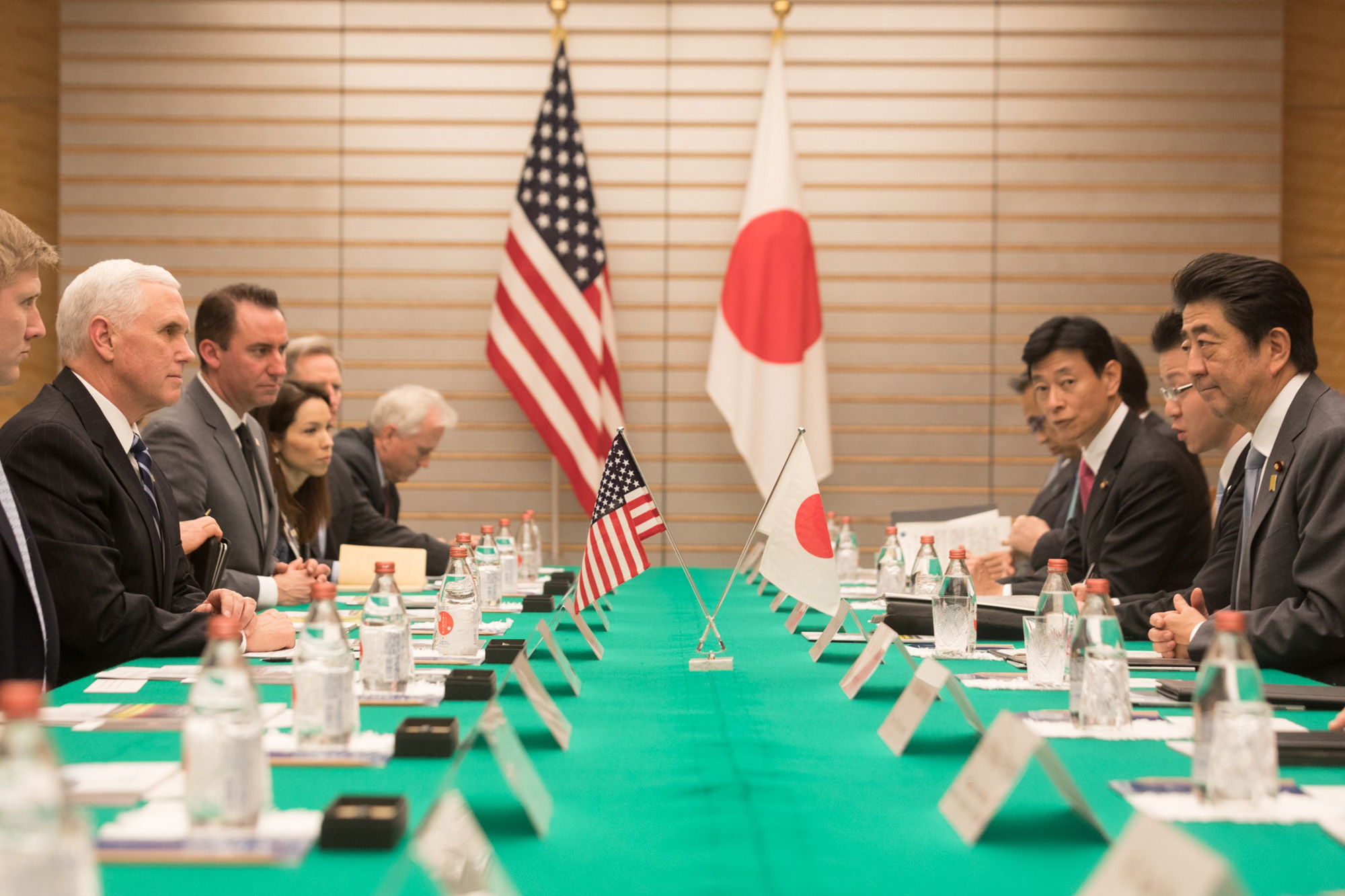The Japan-U.S. security alliance has been the cornerstone of Asia-Pacific regional order since the 1960s. It may well still be. Much depends on whether the United States continues to fulfill its mutual defense obligations under the Japan-U.S. security treaty. U.S. President Donald Trump's abrasive "America First" approach raises disturbing issues for Japanese policymakers. In private they must ask, "Can Japan continue to depend on the U.S. for its security?"
It's no small question. The U.S. plays an oversized role defending Japan and other allies against threats posed by ideologically opposed great power competitors, especially China. Should Washington stop playing that role, Japan would struggle to find good alternatives. European NATO countries face a similar dilemma, but can more easily turn to one another in a crisis. Japan, on the other hand, remains an isolated archipelagic apostrophe off the Eurasian continent. There are no easy substitutes for the U.S. umbrella.
That may account for Prime Minister Shinzo Abe's many attempts to engage Trump since his inauguration. Abe has met the president seven times and was the first world leader to do so. Ken Jimbo, a professor at Keio University specializing in national security, says each time they've met they probably talked about only one issue — the importance of the alliance. "That's not seven separate items they have talked about," Jimbo stresses. Despite this, "The alliance's security architecture is not working right now," he admits.


















With your current subscription plan you can comment on stories. However, before writing your first comment, please create a display name in the Profile section of your subscriber account page.